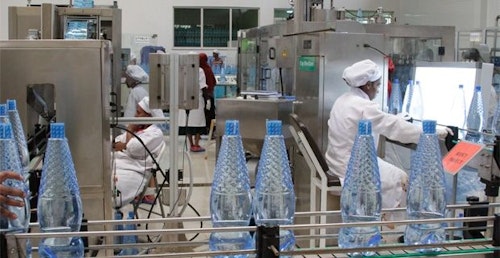How to Start a Pure-Water Business in Nigeria

Starting a business in Nigeria can be daunting, especially because you’d have to raise the capital and finances to get it running effectively.
Small and medium-income businesses face an even greater challenge of increasing productivity in the short run. Today, we discuss how to start a pure-water business.
With a market of over 50 million, the pure-water business has more than doubled in income in the past few years. Today, there are over a hundred pure-water companies scattered across the country.
In this post, we provide everything you need to start your own pure-water business in Nigeria.
How to start a restaurant business
Starting Your Pure-Water Business
1. Have a Strategy
It sounds like a joke and maybe cliché, but having a business strategy for even your pure-water business can relieve a lot of stress.
Get to work writing all you would need for your pure-water business. Make sure you research and understand all you require in detail.
Inquire from already existing pure-water owners about all there is to know about the business.
2. Get a Suitable Location
Having a suitable location for your pure-water business starts with how hygienic the location is.
Your location should also have easy access to water or at least enough groundwater for you to have access to.
Also, choose a serene location. To avoid contamination, stay away from heavy industrial areas or areas close to fueling stations.
The trick is to get a spacious location with enough room for storage. Having a location close to the city can also be an added advantage.
3. Register and Seek Government Approval
The next step is registering your pure-water business with the Corporate Affairs Commission (CAC).
This can be done anytime before or after getting your location. You can register your business as a limited liability company or as a business name.
When registering with the CAC, you require two names for your business and some other general personal information. You would also need an identification card and a copy of your signature. The CAC generally charges about NGN15,000 to register a business.
Also, get the necessary approval and licenses from the National Foods and Drug Administration (NAFDAC) and any other state or community requirements needed for your business.
NAFDAC has two steps to approving your pure-water business. The first step is the notice step, informing NAFDAC of your desire to set up a pure-water factory. The second step is inspection, where NAFDAC inspects all the necessary equipment that is standard enough for an excellent product.
4. Install Boreholes, Water Tanks, and Water Purification Systems
The next step is to have boreholes sunk into the location. To keep your water uncontaminated, professionals ensure your boreholes are sunk deep.
Today, the general cost of having a borehole sunk in Nigeria is estimated at NGN400,000 to NGN20,000,000. The actual price depends on the area's water level; for instance, it will be cheaper to sink a borehole in Riverine areas like Rivers State, Delta states, etc., than in a state like Enugu State.
Also, acquire the best and longest-lasting water tanks that are durable for your business. The appropriate water tank should be large and strong enough to withstand harsh weather.
A standard water tank ranges from NGN200,000 to NGN400,000 in Nigeria.
Another significant installation for your pure-water business is the water purification and distillation system. Having a purification system installed in your tanks offers your pure water added protection and makes it generally safe for drinking. Most states and the NAFDAC require you to have a water purification system attached to your tanks.
5. Acquire Pure-Water Sealing machines and Packaging
Get customized designs for your pure-water business. To blend into the usual blue transparent pure-water color on the market, this is the style most Nigerians are used to.
Ensure your designs state all NAFDAC specifics required and are not loud or offensive. One of which is the Dingli Pure-Water sealing machine.
You can also get wraps that are measured to 50 or 60 cl, depending on the measurements you intend to sell to the public.
In addition, acquire a sealing machine for your business. The sealing machine helps seal the water into the wraps and further enhances the product until it is opened and used by the final consumers.
6. Invest in Logistics
Proper logistics will transport your products far and wide. Get trucks, trailers, and other transport mechanisms to move your goods from point A to point B.
Unlike other businesses where traders or retailers meet at a point to buy wholesale, in the pure-water business, the product is usually delivered to the doorstep of retailers by the manufacturers.
7. Invest in Marketing
Don’t just deliver your pure water; ensure to speak to the retailers for them to be delivered.
Most retailers patronize already existing pure-water companies and would want incentives like price cuts to buy from you. Ensure you connect with as many retailers as possible.
Pure water packaging and sealing machines
Conclusion
The pure-water business is ideal. Nonetheless, it comes with challenges and can be daunting for most entrepreneurs. To get started, ensure you have everything you need for an excellent product.
This post provided all an investor needs to begin pure-water production in Nigeria.
Frequently asked questions
Must I register with the CAC?
Can I offer samples to retailers?